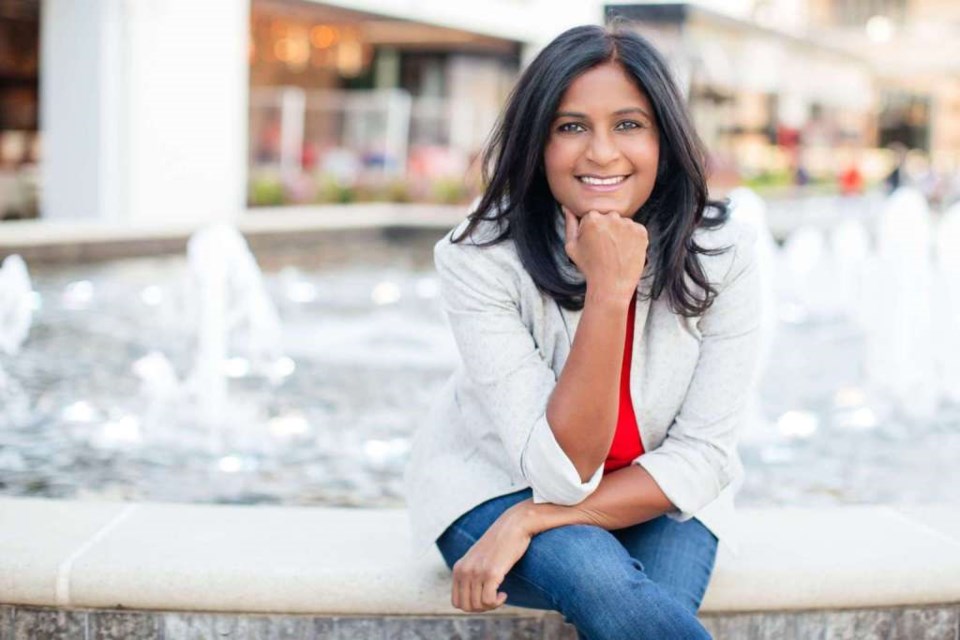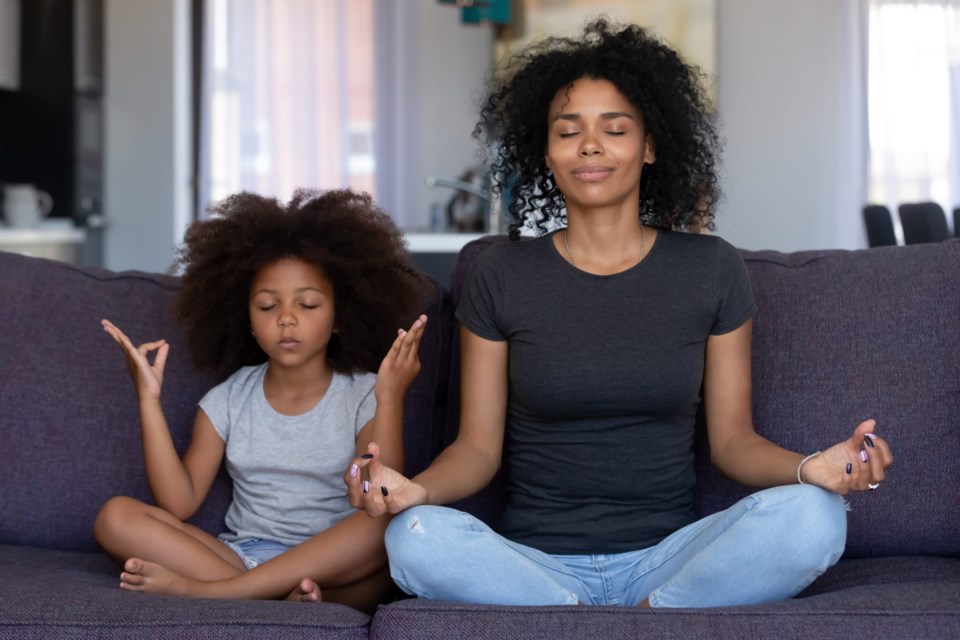Not long ago, at a family gathering, Conscious Parent and Living Coach Sapna Rad noticed that the 10-year-old son of a friend looked unhappy. She’d heard he’d been acting out, and as she watched, she saw that he was fidgeting, unable to keep still. So she sat down with him and asked what was wrong.
He told her that he had a bad feeling that something was going to happen.
“What’s going to happen?” she asked.
After a few careful questions, the boy admitted that he had seen his mother coughing recently and was afraid that she would catch COVID-19. He’d been worried about it for weeks.
“His parents had no idea what was on his mind,” Rad says. But once it was out in the open, their family was able to talk about it, and ease his fears. “Kids can sense their parents’ stress, but don’t always have the language to talk about it,” Rad says. “It can feel very helpless.”
As a Conscious Parent, Rad teaches parents to connect to themselves in order to connect to their children. As she puts it, Conscious Parenting is about raising the parent, and in the pandemic, she says the bond between parents and their children is more crucial than ever.
November is Children's Grief Awareness Month and this year, it’s coming at the tail end of a long slog: COVID-19 has effectively changed life as we know it. In September, Cook’s Children’s Medical Center in Fort Worth said they were seeing an “alarming” rise in juvenile suicide patients, almost one per day. In August, they admitted 29 children following suicide attempts.
“We see kids every day, telling us they’re struggling. They wish they can go back to their normal lives,” says Dr. Kia Carter, medical director of psychiatry at Cook Children’s to CBS news. She noted COVID-19 and pressure from social divides as key causes.
Also in September, Behavioral Healthcare Manager Vanessa Simpson, a therapist for Children’s Health School-Based TeleBehavioral Health program, told Local Profile that she observed an increase in juveniles struggling with anxiety, “because they are missing their friends and they’re missing the normalcy of what their previous school years have offered them.”
Rad’s goal is helping parents and children understand each other so that they both have support. When something is wrong, babies cry because they don’t know how to express their needs. When children act out, she says, something similar is happening. The real problem isn’t that a child is poorly behaved, or poorly disciplined. The problem is usually inability to communicate.
“Even today, most parenting books say you have to discipline, put them in time out. One or two talk about Conscious Parenting. Of course you need boundaries, but you don’t need punishment,” she says. “We’re told discipline, use time out, but that’s on the surface, fixing the surface problem of bad behavior.
"There’s a reason a child is behaving that way; no one wants to behave badly, but children can’t always communicate what the problem is. Maybe they don’t understand what’s being taught in class, or maybe the parents are under-pressure and stressed out.”
Her friend’s 10-year-old son is an example; he was under pressure his parents knew nothing about.
Just about all parents and children at some point feel dissonance in their relationships. One of the most common phrases a teenager might yell at a parent is “You don’t understand me.”
“This is about understanding, both your child and yourself,” Rad says. In other words, when a child acts out, she helps parents look for the cause of bad behaviors, rather than treat the symptoms.

Rad became interested in Conscious Parent because as a child growing up in India, she often felt misunderstood by her parents. She became a teacher after a lifetime of studying, and 13 raising her own son. Rad frequently calls him her greatest teacher.
She offers an example. Like most 13-year-old boys, her son loves video games. Recently, she came home from work on a Saturday and she noticed he was playing video games. Immediately, her first thought was whether he’d been ignoring his homework, which led to “Will he get a job one day, will he be homeless one day?” It culminated in one single bedrock fear: “Am I a bad mom?”
“I was afraid,” she says. “My instinct was to pull the remote out of his hand and shout at him, to discipline him. I would have yelled at him, he would have yelled at me.”
But Rad stopped herself at the door. “I stopped and listened to my own thoughts, feelings, and fears.” She dropped her fears: that she was failing her son, that he would leave home without the skills to take care of himself. “I dropped the fear at the door,” she says. Rad calmly asked her son how long he had been playing and if he could finish up soon.
“Two minutes,” he requested, and she agreed. Soon, he came to help her in the kitchen and began telling her about his game play. Later, she asked him to only play for two hours the next day, putting a boundary, and he agreed. “I didn’t run in the door judging him or yelling at him. I listened to where he was coming from, I gave him that space of two minutes. And we connected. I am the adult. I had to come from a place of calm,” she says.
Even though Conscious Parenting is her living and her lifestyle, she still works at it every day. “I’ve been doing this for a while now, looking into my own triggers, my own baggage, my own past.” she says. “I still have to work at it.”
When Rad teaches parents about Conscious Parenting, she tells them to consider their own deep hurts. It’s a process that leads to healing for everyone in the family.
Before the pandemic, she says, people were stressed, but life was busier. However now, after months of lockdown and change, more stress has come to the surface. “A parent has vulnerabilities,” she says. “Every parent worries about their child. We all feel isolated sometimes. Every parent messes up. I hope that if more people hear that, they know it’s not just them.
“When you do this with your kids, you become better humans, better spouses, better friends, because it becomes your lifestyle. Empathy becomes the way you live your life.”
For more information, visit sapnarad.com




